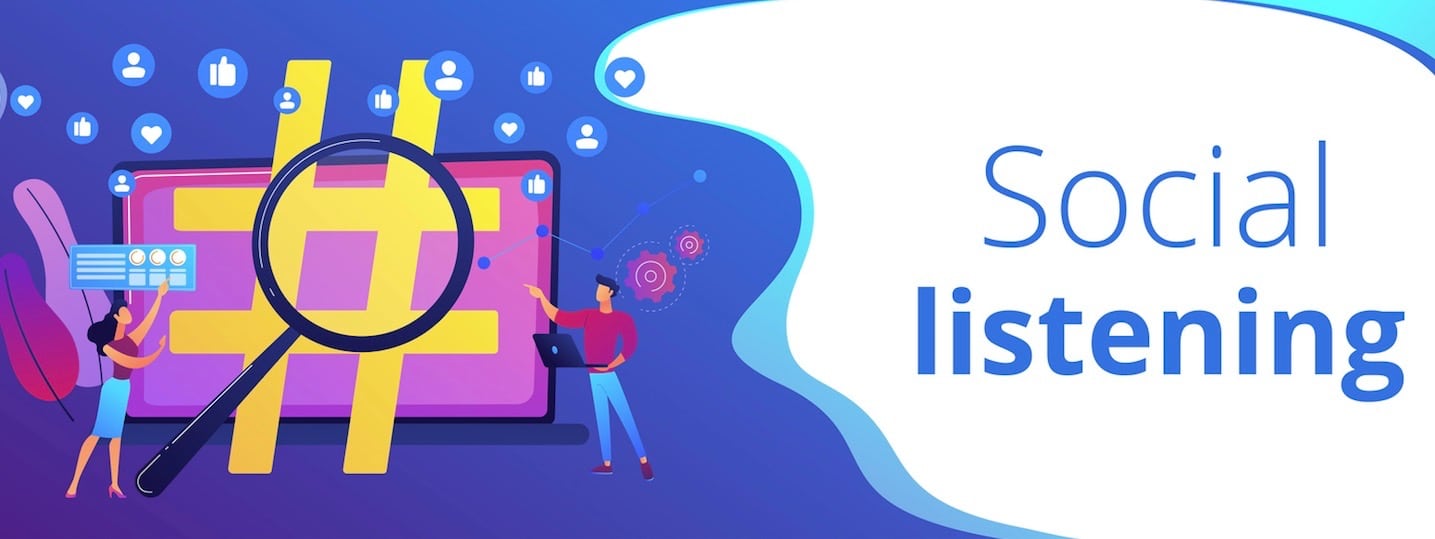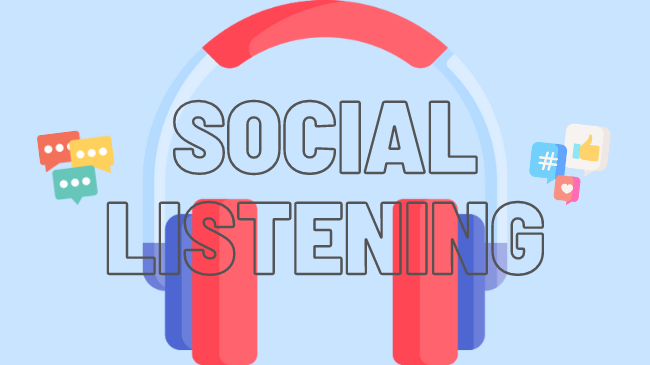In the ever-evolving world of social media and digital interactions, businesses are constantly seeking ways to stay relevant and connect with their target audience effectively. One such powerful strategy is “Social Listening.” This article will explore the importance of social listening, its significance, and how businesses can leverage it to thrive in the competitive landscape.
Importance of Social Listening: How Listening to Your Audience Can Transform Your Business

What is Social Listening?
Social listening, also known as social media monitoring, refers to the process of tracking, analyzing, and extracting valuable insights from conversations and mentions on various social media platforms. It goes beyond monitoring your brand’s social media accounts; instead, it involves monitoring all online discussions relevant to your brand, industry, or keywords of interest.
Importance of Social Listening
1. Understanding Customer Needs and Preferences
Social listening provides businesses with the opportunity to listen attentively to their customers’ opinions, complaints, and suggestions. By analyzing customer feedback, businesses can gain valuable insights into their preferences, pain points, and expectations. This knowledge enables them to improve their products and services to better align with customer needs, fostering stronger customer relationships and brand loyalty.
2. Monitoring Brand Reputation
Your brand’s reputation is of paramount importance in the digital age. Social listening enables businesses to track mentions of their brand and identify sentiment trends. Positive sentiments indicate brand advocacy, while negative sentiments may signal potential issues that need to be addressed promptly. By being proactive in reputation management, businesses can maintain a positive brand image and mitigate potential crises.
3. Identifying Industry Trends and Competitor Insights
Social listening offers businesses the opportunity to stay ahead of the curve by identifying emerging industry trends and monitoring their competitors’ activities. By understanding what topics are trending in their industry, businesses can adapt their strategies and develop innovative products or services that cater to current market demands.
Implementing Social Listening Strategies
To successfully implement social listening strategies, businesses need to follow these essential steps:
1. Choosing the Right Social Media Listening Tools
There are numerous social media listening tools available, each with its unique features and capabilities. Businesses should select tools that best suit their needs, taking into account factors like budget, the platforms they want to monitor, and the depth of analysis required.
2. Defining Relevant Keywords and Topics
To ensure accurate monitoring, businesses must define relevant keywords, phrases, and topics they want to track. This includes mentions of their brand name, product names, industry-specific keywords, and terms related to their marketing campaigns.
3. Monitoring Mentions and Sentiments
Consistent monitoring of social media mentions and sentiment analysis helps businesses gauge customer opinions about their brand and identify potential issues. Sentiment analysis allows businesses to categorize mentions as positive, negative, or neutral, providing a comprehensive overview of customer perceptions.
Leveraging Social Listening for Customer Service
1. Responding to Customer Feedback
Social listening allows businesses to respond promptly to customer feedback, queries, and concerns. Timely and personalized responses demonstrate that the brand values its customers, leading to enhanced customer satisfaction and loyalty.
2. Resolving Issues and Building Relationships
Addressing negative feedback publicly and transparently resolving issues can turn disgruntled customers into brand advocates. By demonstrating a commitment to customer satisfaction, businesses can build strong, lasting relationships with their audience.
Social Listening for Content Creation and Marketing
1. Identifying Content Ideas and Trends
Social listening serves as a rich source of content ideas and trends. By analyzing what topics and themes resonate with their audience, businesses can create compelling content that captures attention and generates engagement.
2. Tailoring Content to Audience Interests
Understanding the preferences and interests of the target audience allows businesses to tailor their content and marketing strategies accordingly. Personalization fosters a deeper connection between the brand and its customers, driving higher engagement and conversions.
Crisis Management and Mitigation
1. Detecting and Addressing Crisis Situations
Social listening acts as an early warning system, helping businesses detect potential crises in real-time. By promptly addressing issues, businesses can mitigate the impact of negative publicity and safeguard their reputation.
2. Maintaining Brand Image during Challenges
During challenging times, social listening provides valuable feedback on the effectiveness of crisis management strategies. Constant monitoring allows businesses to adjust their approach and maintain a positive brand image.
Social Listening for Market Research
1. Gathering Customer Insights
Social listening serves as a treasure trove of customer insights. By analyzing customer conversations, businesses can identify pain points, preferences, and unmet needs, guiding the development of new products and services.
2. Conducting Competitor Analysis
Social listening also offers valuable insights into competitor activities and sentiments. Understanding how competitors are perceived in the market helps businesses refine their strategies and stand out in a crowded marketplace.
Measuring Social Listening Success
1. Key Performance Indicators (KPIs) to Track
To measure the effectiveness of social listening efforts, businesses should track relevant KPIs. These may include sentiment analysis trends, customer engagement metrics, and the impact of social listening on brand reputation.
2. Analyzing Data and Making Data-Driven Decisions
Data analysis plays a crucial role in deriving actionable insights from social listening. By interpreting the data collected, businesses can make informed decisions to optimize their social media strategies.
Challenges and Limitations
Social listening also comes with its share of challenges, such as the vast amount of data to process, the need for real-time response, and potential language barriers in global markets. Additionally, not all conversations may be explicitly mentioned or tagged, making comprehensive monitoring a complex task.
Best Practices for Effective Social Media Listening
1. Stay Consistent and Regular
Consistency is key to social listening success. Regularly monitoring social media channels ensures businesses do not miss out on important conversations or trends.
2. Keep Up with Platform Updates
Social media platforms continually evolve, and new features are introduced regularly. Staying updated with platform changes enables businesses to optimize their social listening strategies.
3. Consider Regional and Cultural Differences
When implementing social listening across diverse regions, businesses should be sensitive to cultural differences that may impact language usage and sentiments.
Conclusion
In the digital age, the importance of social listening cannot be overstated. By actively monitoring and analyzing social media conversations, businesses can gain invaluable insights into their customers, industry trends, and competitors. Social listening empowers businesses to make data-driven decisions, enhance customer experiences, and maintain a positive brand image.
If you’re looking to take your business to the next level with the power of social listening, don’t hesitate to request a demo from AIM Technologies. Our cutting-edge social listening tools and solutions will help you stay ahead of the competition and better connect with your audience.
FAQs
What are the benefits of social listening for businesses?
- Social listening benefits businesses by providing insights into customer needs, brand reputation, industry trends, and competitor activities.
How can social listening help in crisis management?
- Social listening helps in crisis management by detecting potential issues early and allowing businesses to address them promptly, mitigating negative publicity.
What are some popular social media listening tools?
- Some popular social media listening tools include Hootsuite, AIM Insights, Mention, and Sprout Social.
Is social listening only relevant to large businesses?
- No, social listening is beneficial for businesses of all sizes as it helps them understand and engage with their audience more effectively.
How often should businesses engage in social listening?
- Businesses should engage in social listening consistently and regularly to stay updated with customer sentiments and industry trends.




